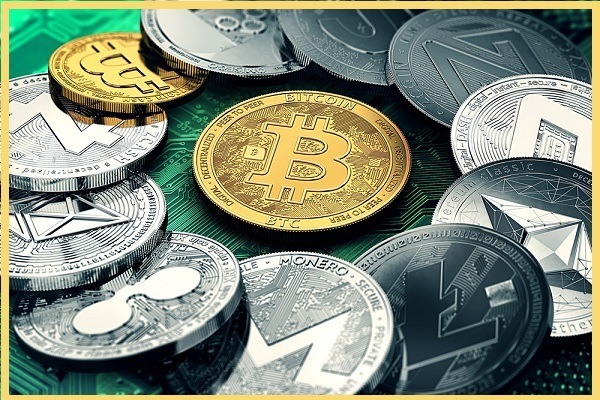Some Important Truths About Crypto-Currencies

MAKE NO MISTAKE: TRADING IN CRYPTO-CURRENCIES IS A ZERO-SUM GAME...
The number of cryptocurrencies available over the internet as of 7 January 2018 is over 1,384 and growing.[1] A new cryptocurrency can be created at any time.[2]
-- Wikipedia
I do not pretend to be a crypto-currency guru. Nor am I a blockchain technology expert. I'm just an average small-business guy who can read and, I think, discern some basic truths in that which I read.
Truth #1: Crypto-currencies do not have any intrinsic value. Whatever value they have to an owner depends entirely on someone else wanting to buy them. Therefore, investing in such currencies amounts to nothing other than gambling on rising demand, whether that demand is rational or irrational.
Of course, that isn't so much different from investing in stocks these days, since the markets have long past moved away from viewing the value of a stock as related in any fashion to a company's earnings or hard assets or even potential future profits. But that doesn't change the fact that investing in crypto-currencies is not far removed from parimutuel betting.
Truth #2: No single crypto-currency held by an investor will ever appreciate in "value" as long as the issuer of that currency continues to sell the currency at the same price or lower than that paid by the investor in question.
Crypto-currencies gain "value" much in the same way as "collectibles" (like Beany Babies) do, namely, by their creators limiting supply, thus driving up demand, however artificially. If the creator of a given crypto-currency in which you've invested has not yet stopped selling it or has not raised the price to buy at the source, you are holding a pig-in-a-poke.
Truth #3: You cannot rely on the advice about investing in crypto-currencies from anyone who has already invested in them.
This is because anyone who has already invested gains only when demand pushes up the price. Consequently, those who have already invested have a clear ulterior motive for encouraging you and anyone else who will listen to invest in the currency or currencies they are holding.
Truth #4: Decentralized blockchain-based data-keeping was originally associated with Bitcoin crypto-currency as a means for imbuing the system with perceived credibility.
The idea was that if the transaction records were held publicly and constantly verified and re-verified using a transparent system, the issue of trusting the records would be resolved.
Unfortunately, in the current climate of crypto-frenzy, buyers are acquiring and recommending that others acquire various crypto-currencies without assuring themselves that decentralized, public record-keeping is in place or operating correctly. And if you can't trust national governments or central banks to keep their records accurately and hack-free, what would make you trust some shadowy, unidentified or unknown IT techie entrepreneur to do the job or be honest about it?
Truth #5: Investing and trading in crypto-currencies is a zero-sum game.
Simply stated, that means in order for someone to win someone else has to lose. Just as in parimutuel betting. Moreover, as with parimutuel and other forms of betting, the house always wins because it finds ways to skim from the pot. Which means it doesn't matter to the house who wins and who loses, as long as enough action is churned up.
However, it does matter to you. In the case of crypto-currencies (as with collectibles) those who get in early stand a better chance of winning as frenzied irrational demand pushes prices up, provided they don't wait too long to get out.
That's the same reality as a classic con game. Which is why I am waiting for an announcement of a new crypto-currency dubbed "Ponzitos." — Phil Friedman
Afterword: This piece was inspired by Graham🐝 Edwards, who may or may not agree with what I've said here, but who is always, as I see it, an authentic contrarian and more than willing to explore concepts and ideas openly and honestly. Thank you, Graham, for being a good sport.
About me, Phil Friedman: With some 30 years background in the marine industry, I've worn different hats — as a yacht designer, boat builder, marine operations and business manager, marine industry consultant, marine marketing and communications specialist, yachting magazine writer and editor, yacht surveyor, and marine industry educator. I'm also trained and experienced in interest-based negotiation and mediation. In a previous life, I was formally trained as an academic philosopher and taught logic and philosophy at university.
Text Copyright 2018 by Phil Friedman — All Rights Reserved
Image Credits: Phil Friedman and Google Images.com

BONUS MATERIAL:
If you are tired of having your professional and business networking efforts undermined by arbitrary algorithms over-riding your choices and those of your followers and connections, you should check out the initiative that is working to shift the paradigm...

RUNNING ON RAILS DOESN'T GET YOU ANYWHERE, WHEN THE TRACK DEADENDS...
Consider the newly-introduced OpenWorld collaborative professional networking platform:
- 100% Organically-determined distribution to and between users/members
- Completely free of arbitrary algorithmic manipulation
- Fully transparent platform management, clear of undisclosed agendas
- No monetization of user/member data
- No interference with user/member settings or optional elections
- Open to the sharing of relevant content from other networks and platforms
OpenWorldNorthAmerica.org (comprised of OpenWorldUSA.org and OpenWorldCanada.org) is a not-for-profit organization that will be owned by its members in the way a mutual insurance company is owned by its policyholders. It is presently moving through its alpha-phase development toward an upcoming beta test phase for which we are seeking a minimum 10,000 charter members.

Articles from Phil Friedman
View blog
SEATTLE YACHTS' RE-INTRODUCTION OF THE LEGENDARY ALASKAN LINE OF TRAWLER-STYLE YACHTS CONTINUES TO A ...

WILL KICKING BUTT IN THE U.S. HOUSE OF REPRESENTATIVES BE A STEP FORWARD OR TWO STEPS BACK? · Prefac ...

TODAY'S POPULAR DISCUSSIONS ABOUT ARTIFICIAL INTELLIGENCE AND Ai ARE RIFE WITH SCIENCE FANTASY AND L ...
Related professionals
You may be interested in these jobs
-
A Locums Obstetrics/Gynecologist Is Needed in AZ
Found in: Recruitics US JB C2 - 4 hours ago
Weatherby Healthcare Yuma, United States PER_DIEMEnjoy the locum tenens lifestyle knowing Weatherby is here to support you every step of the way. Call and speak to one of our consultants today for available dates and details.Willing to wait for license · BC or BE required · Weekdays, Weekends · ACLS required · 300 deliveries pe ...
-
Lead Product Manager, CPM Compliance
Found in: Lensa US 4 C2 - 19 hours ago
Zynga Austin, United StatesAVAILABLE POSITIONS Lead Product Manager, CPM Compliance · Careers Category:Product Management · Careers location:Austin, TX, Bay Area, CA, Chicago, IL, Toronto, Canada · Connected Worker Type:Connected · Requisition Id:R_111403 · Our mission at Zynga is to connect the world ...
-

Equipment Teardown Specialist
Found in: One Red Cent US C2 - 6 days ago
Worthington Tractor Parts, Inc. Goldsboro, United StatesJob Description · Job DescriptionWorthington Tractor Parts, Inc. is looking for an individual with mechanical ability (or general mechanical knowledge) and some farm equipment kowledge to pull parts off equipment at our Goldsboro, NC location. This individual must understand and ...


Comments
Jim Murray
1 year ago #49
You can I have shared this same belief since the get go. All that the intervening years have proven is that the only logic that applies is that he who is at the top of the pyramid gets rich (maybe). Everyone else gets screwed (probably).
Zacharias 🐝 Voulgaris
6 years ago #48
Phil Friedman
6 years ago #47
My observations have to do with crypto-mania primarily, and only peripherally with blockchain, , but as far as I can see, the magical black box that is blockchain is being used by crypto-entrepreneurs to give the appearance that there is something to their ICOs other than smoke and mirrors. No doubt, some fortunes will be made in crypto currency specukation — and some will be lost. And the real question amounts only to who will be sitting in a chair when the music stops. Cheers!
Randall Burns
6 years ago #46
Great article Don Philpott\u2618\ufe0f
Phil Friedman
6 years ago #45
#53 #51 Mark, Randy, and Franci -- perhaps beBee paid for its server space in crypto-currency -- with the results you're noticing. ROFLMAO!
Randall Burns
6 years ago #44
LMAO!!! Seriously I was reading a post yesterday that cited 340 comments, (one of Phil Friedman as a matter of fact), and at least 180 comments on that thread were MIA, not there. I'm seeing this on EVERY post.
Mark Morris
6 years ago #43
Phil Friedman Disappearing stuff? Must be a blockedchain. Do you hear the same swirly sound that I do here?
Phil Friedman
6 years ago #42
Following up on your comment, it is interesting I think that the Profede ICO promotional material pegs the value of Patos at the future Crowdsale stage in terms, not of other crypto-currency but in terms of U.S. dollars (a Fiat currency). When I asked Javier beBee why that was, he responded it was because BTC and ETH were too rapidly changing to project what their value would be in future, so they chose the U.S. dollar to give potential buyers an idea of what a Pato would be worth. That says a lot-- at least to me. BTW, I cannot quote Javier because parts of this discussion thread continue to disappear, including several remarks of mine and Javier's. Randall Burns has been calling attention to these mysterious disappearing comments, but the only answer has been it is the result of some bugs in the transition to a new platform. That, however, is hardly credulous, as it is continuing to happen selectively in this comments thread. Cheers!
Phil Friedman
6 years ago #41
Randall Burns, you are correct when you say that, "... if someone puts a "value" on something regardless if it is an "abstract" or not then there is a perceived value to that person ..." But my point is that is the ONLY value that crypto-currency has, namely, what someone is willing to pay for the Ponzitos or Bitcoins or whatever. An avocado has that value but also has nutritional value (and a lot of calories). So if I can't sell my Avocado for an acceptable price in US dollars or Bitcoins or Ponzitos or, for that matter, Cheetos, I can still realize value from it by eating it. Try dat, bud, wid a Bitcoin. Moreover, unlike with U.S. dollars or other Fiat currencies, you can't legally force someone to accept Bitcoins or other crypto-currencies in satisfaction of your rent due or your car payment or for a good meal prepared by a first class chef whom I happen to know. Fiat currencies have "underlying value" in terms of what they will buy in terms of real goods and services. Crypto-currencies do not. Cheers!
Phil Friedman
6 years ago #40
@Mark Morris, I think you mistake the use of "value" in this context. I agree that in a free market situation (where supply and demand are allowed to float freely -- a situation rarely achieve in the real world) the "value" of anything is at any given moment only what someone is willing to pay for it. However, when we talk about the "underlying value" of currency, we're generally talking about establishing relative values between different currencies. Since the abandonment of the gold standard, the underlying value of currencies has been taken to be what they would by Fiat buy in terms of real goods and services. For example, legally the only tender (money) that can be used in transactions in the U.S. is the US$. And in Canada, the CD$. So if it costs US$30,000 to buy a Chevy 150 pickup truck in the US, but costs CD$40,000 to buy the same truck in Canada, we might say that the US$ is worth 1.33 times that of the CD$. That, of course, is both theoretical and over-simplified. Beyond the need to compare a huge range of real goods and services, there is also the fact that exchange rates are distorted by currency speculators trading on the currency exchange markets. Nevertheless, I think you can get the idea -- which has nothing directly to do with "valuing" an individual avocado. Cheers!
Mark Morris
6 years ago #39
I don't understand most of it either, Randall Burns particularly with respect to practical applications that would be "better". Your point on food. yes, it's a necessity, but the specific value (the cost whether its bartered or paid in currency, or whatever) is still market driven. It's "Worth" what someone will give you at any given moment, no more, no less. Which is why I think Phil Friedman's argument is false. At least on that one point. That avocado that cost me 5.00 is basically the same avocado that cost me 99 cents last week. Same potential for nutrition.
Randall Burns
6 years ago #38
I understand your point Mark Morris that if someone puts a "value" on something regardless if it is an "abstract" or not then there is a perceived value to that person; I for one, who is still trying to get my head around the whole concept, cannot see the value in something so abstract as "Bitcoin", (as an example). I see value in a "tangible" asset like a car, food. I can touch, feel, measure it, but in your example of "food" is perfect in that it is not just a tangible commodity but it is an essential in our lives, it is "reality" that cannot be escaped. I can carry on with my life without a second thought about "Bitcoin" with absolutely no repercussions or influence in my life. Can't say that about "food". But by my own admission I still do not comprehend to concept enough to draw any real conclusions, LMAO!
Mark Morris
6 years ago #37
Great discussion. One thing. Phil Friedman IMO, NOTHING has a specific value other than what a market sets for it. Whether it's bartering food, the value of a car, the value of money, or bitcoin, it's all the same. That something has a function doesn't define its value.
Randall Burns
6 years ago #36
Here's a term that I learned yesterday Graham\ud83d\udc1d Edwards and apparently it does have derogatory connotations but people like us are referred to as , "No-coiners" LMAO!
Phil Friedman
6 years ago #35
For the record, as I remember, one of the major points of resistance to the EEC was the adotion of a common currency, which was seen as an attack on various strong Fiat currencies. It is ironic, that you should refer to the Longevity of the EEC when the fact crypto-currencies represent an attack on that economic zone. Beyond that, I never said crypto-currenicies will collapse — although some definitely will. What I said is that soeculating in crypto-cerrencies is a zero-sum game, in which a few will win at a huge cost to a great many others. Because the currencies do not have any underlying value. LOL
Graham🐝 Edwards
6 years ago #34
Javier Cámara-Rica 🐝🇪🇸
6 years ago #33
Cryptocurrencies are like European Union. From the beginning, eveyone speaks it’ll collapse. And, yet it’s still around. ( From 2009 ) LOL have a great day !
Phil Friedman
6 years ago #32
Phil Friedman
6 years ago #31
Javier \ud83d\udc1d beBee, precisely. You yourself say, "... [The] exchange rate of ETH and BTC will depend on the moment. As you know the exchange rate is changing everytime, that the reason why all ICOs fixe the token price in USD" To my mind that betrays a basic lack of trust in the stability of ETH and BTC -- and a continued reliance in the longer-term on Fiat currency, namely, the US$. And if you are correct that all ICOs "fix the token price in USD", that tells us something as well about the entire system, which does not even trust the stability of its own currencies. If that amounts to my not understanding anything, then, yes, I don't understand any of it. Cheers!
Javier Cámara-Rica 🐝🇪🇸
6 years ago #30
Phil Friedman PATO = 1S , exchange rate of ETH and BTC will depend on the moment. As you know the exchange rate is changing everytime, that the reason why all ICOs fixe the token price in USD , but people invest in ETH and BTC, and ICOs get ETH and BTC.
Phil Friedman
6 years ago #29
Phil Friedman
6 years ago #28
Javier \ud83d\udc1d beBee, I can only understand what is published, which is "Crowdsale’s PATO Price: $0.01". A "price" is not a "value", but is usually what is being charged in the course of a purchase. And why do you feel it necessary to use US$ as a reference point, why not BTC or ETH? You are correct, I do not understand. RLOL.
Javier Cámara-Rica 🐝🇪🇸
6 years ago #27
Phil Friedman 0.01 USD is the initial value of PATO so people can understand its value but it is will be running on Ethereum Platform (ETH) ..no USD exist on our blockchain platform. You understood nothing LOL
Phil Friedman
6 years ago #26
You are correct, @Harvey Lloyd, that crypto-currencies are actually developing as a closed gaming (betting)system which is subject further to the vagaries of it external conversion connection to FIAT currencies -- which are what is currently required in order to purchase real goods and services. That situation will change somewhat as more purveyors of real good and services agree to accept some crypto-currencies in payment. But until that happens to a significant extent, any profits potentially derived from trading in crypto-currencies depend on rising demand due purely to the promotional hype and the marketing-based promises of big fortunes to be made.
Phil Friedman
6 years ago #25
With all due respect, Javier \ud83d\udc1d beBee, I did not refer directly or specificlly to Profede's ICO of Patos. Nevertheless, one can only infer the situation from that which is published by Profede: "Fundraising Conditions Presale Discount: March 50%, April 40%, May 30% Crowdsale’s PATO Price: $0.01 Presale Contributions: ETH, BTC and FIAT Crowdsale Contributions: ETH" https://profede.com/ico-terms The way I read this is that Presale and Crowdsale "contributions" can be in either ETH, BTC, or Fiat currency, but that the Crowdsale PATO price will be pegged to the US dollar at the rate of 1 PATO per US$ 0.01. Even if Profede will accept ETH and BTC during the Crowdsale phase, pegging the price to the US$ implies to me a lack of confidence in the stability of ETH and BTC during the period from now until the Crowdsale period begins. And since ETH and BTC are probably the most credible of all the 1,300 plus crypto-currencies, I think it legitimate to ask what this apparent lack of confidence says about crypto-currencies in general? (FYI- Zacharias \ud83d\udc1d Voulgaris)
Zacharias 🐝 Voulgaris
6 years ago #24
Harvey Lloyd
6 years ago #23
Pascal Derrien
6 years ago #22
Javier Cámara-Rica 🐝🇪🇸
6 years ago #21
Phil Friedman
Phil Friedman
6 years ago #20
I agree, Franci\ud83d\udc1dEugenia Hoffman, beBee Brand Ambassador, about the watchword being “caution”. Ask yourself this: In the most recent ICO that you know of, what is the currency being accepted in payment for “tokens” being purchase? Other crypto-currency? Or US dollars? If the answer is US$, ask yourself why. The answers are self explanatiry. Cheers!
Phil Friedman
6 years ago #19
Caveat emptor, to be sure, Gert Scholtz. And don't believe the guy who says "I just made ten million dollars on Ponzitos, let me show you how to do it." For he needs you to buy Ponzitos in order for him to sell at a profit. Cheers!
Phil Friedman
6 years ago #18
Ask yourself if the originating sellers in an ICO accept other crypto-currency in payment of purchases of their issue or whether they insist on one of the mainline fiat currencies (such as US$ or British pounds or Euros) in payment? Bitcoins maybe, but would they take my Ponzitos? I bet not on your life. Cheers!
Gert Scholtz
6 years ago #17
Phil Friedman
6 years ago #16
Yes, Ren\u00e9e \ud83d\udc1d Cormier, I think you are correct. "Those who get in early and rise to the top will do better, as long as someone actually wants the currency and can exchange it for something of value." By "can", I assume you mean are willing -- to give those early buyers something of real value in exchange for their crypto-bits. Thanks for reading and commenting. Cheers!
Phil Friedman
6 years ago #15
Thank you, Jerry Fletcher, for reading and taking the time to comment. I agree with your point that, if blockchain is a useful technology, it should be monetizable independent of crypto-currency transactional record-keeping. However, right now, I believe the band wagon is playing for crypto-currency speculation, which is, to my mind, a form of unregulated sale of junk securities akin to crowd-funding, but with much larger numbers involved and much greater potential for ultimate harm. Cheers!
Phil Friedman
6 years ago #14
Thank you, @Don Philpott, for your astute comment. You raise an intriguing issue that I hadn't heretofore thought much about -- namely, how the objectives of economic globalization align with the development of unregulated global currencies. If you are correct -- which I intuit that you are -- the growth of crypto-currencies represent a direct attack on national governments by those who see the world as eventually evolving into being governed by global, transnational corporations. Yes, Virginia, those econo-politico radicals are, in fact, out there. And they are a danger to the "common folk". Cheers!
Phil Friedman
6 years ago #13
Thank you, , for the kind words. As you might infer, I believe that the crypto-currency market is fast becoming a form of unregulated sale of junk securities akin to crowd-funding, but with much larger numbers involved. And it strikes me that a flock of predators is circling for the kill -- since in a zero-sum game, really big winners need really big losers to take the fall. Cheers!
Phil Friedman
6 years ago #12
I agree with you, Pascal Derrien. I have no doubt that some will make huge fortunes in crypto-currency speculation, while many others will lose their shirts (and futures). And the real question is who will end up as a hawk and who as a mouse. Thanks for reading and commenting in your inimitable fashion. Cheers!
Phil Friedman
6 years ago #11
Thank you immensely, Ian Weinberg, for that citation. It is one of the clearest and most complete evaluations I've yet to read. And I recommend it to anyone seriously interested in the topic. Cheers!
Ian Weinberg
6 years ago #10
Ian Weinberg
6 years ago #9
Ian Weinberg
6 years ago #8
Pascal Derrien
6 years ago #7
Jerry Fletcher
6 years ago #6
Phil Friedman
6 years ago #5
Randall Burns, I think it's more than just being able to touch and hold gold. Gold has some underlying value in medical and industrial uses. For example, most computer component contacts are gold plated because gold does not tarnish and its electrical conductivity is excellent. And because it does not tarnish or corrode under normal circumstances, it is much in demand for the manufacture of jewelry. So although the price of gold is at times fueled by commodities speculation, there is some basis for its "underlying" value. In contrast, the only value a crypto-currency has is that someone will want to buy it from you because they anticipate being able to sell it at a higher rate than they paid for it.
Ian Weinberg
6 years ago #4
Randall Burns
6 years ago #3
Phil Friedman
6 years ago #2
Phil Friedman
6 years ago #1